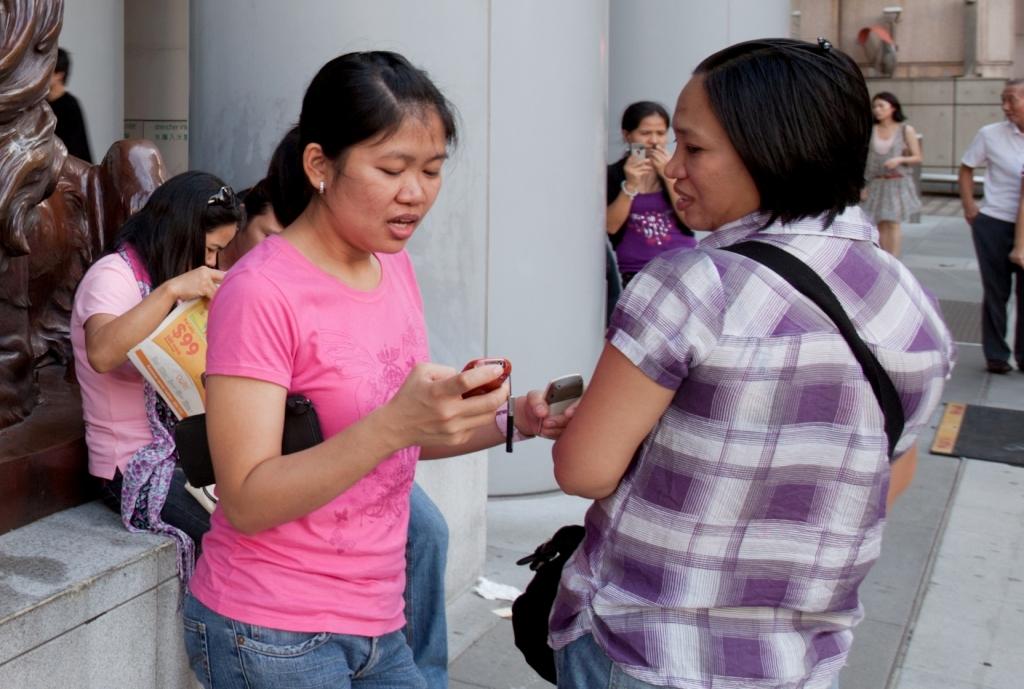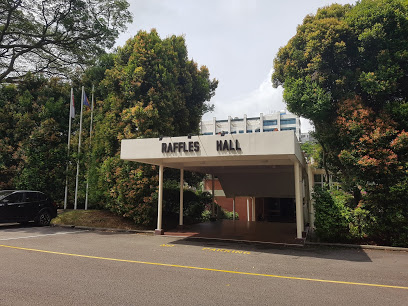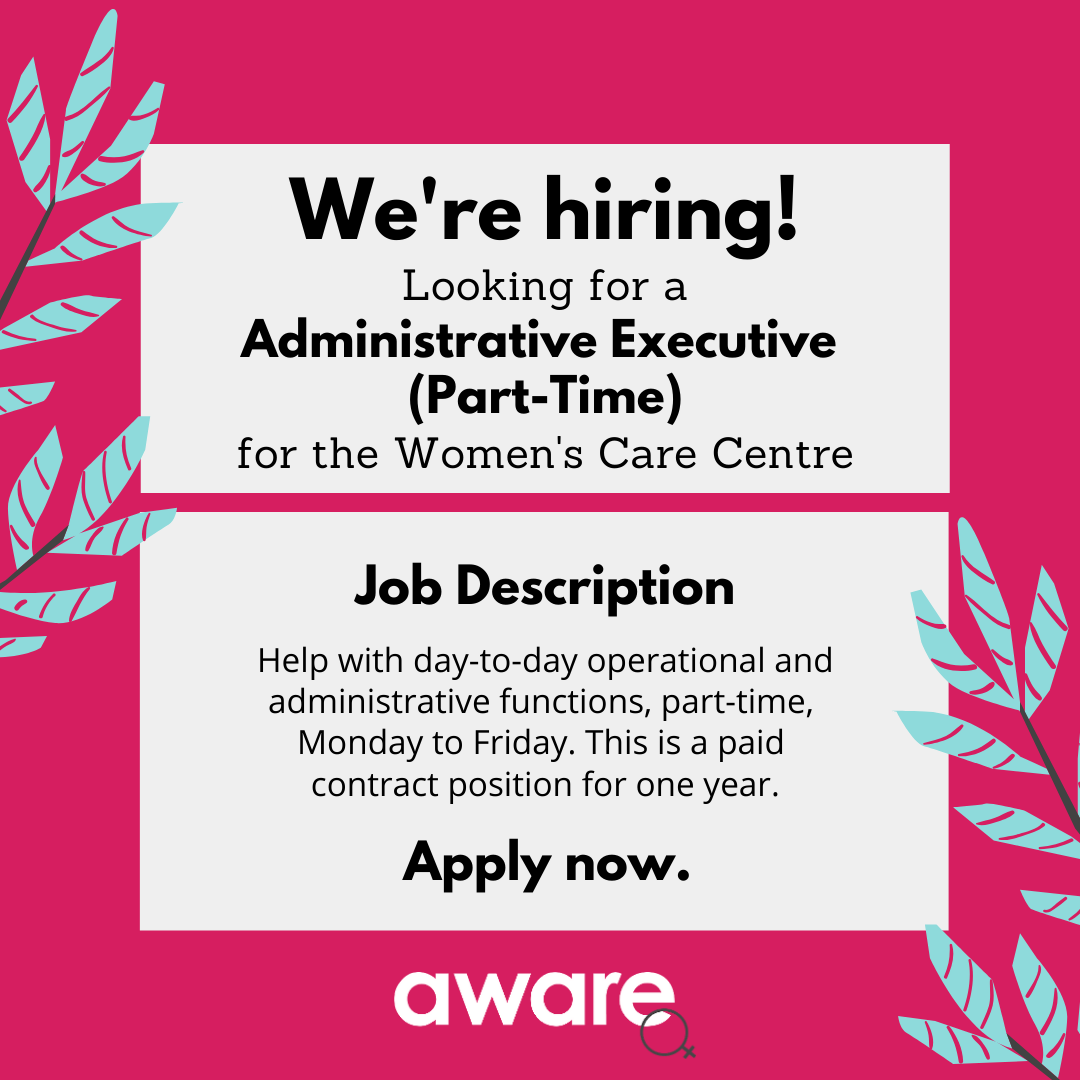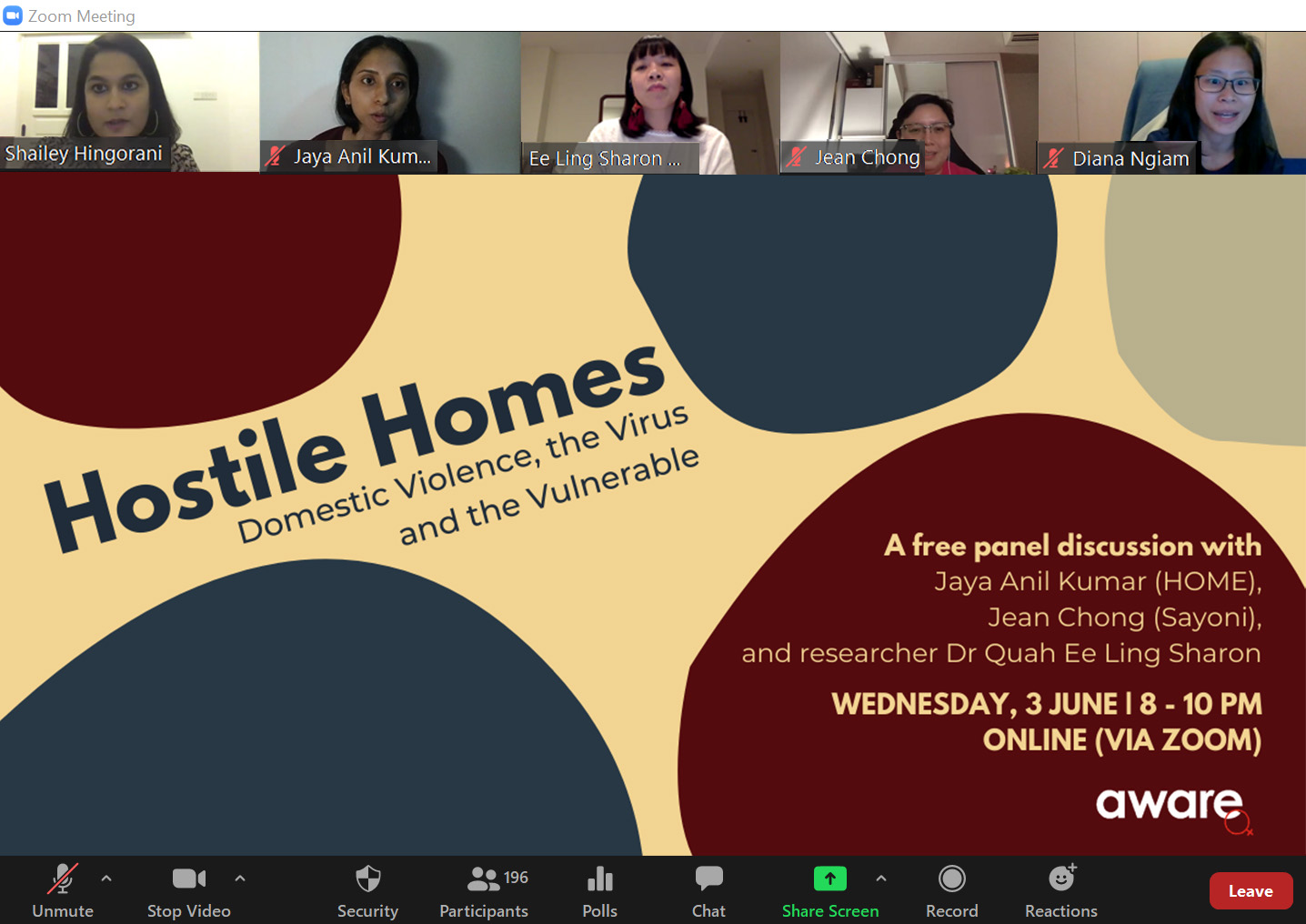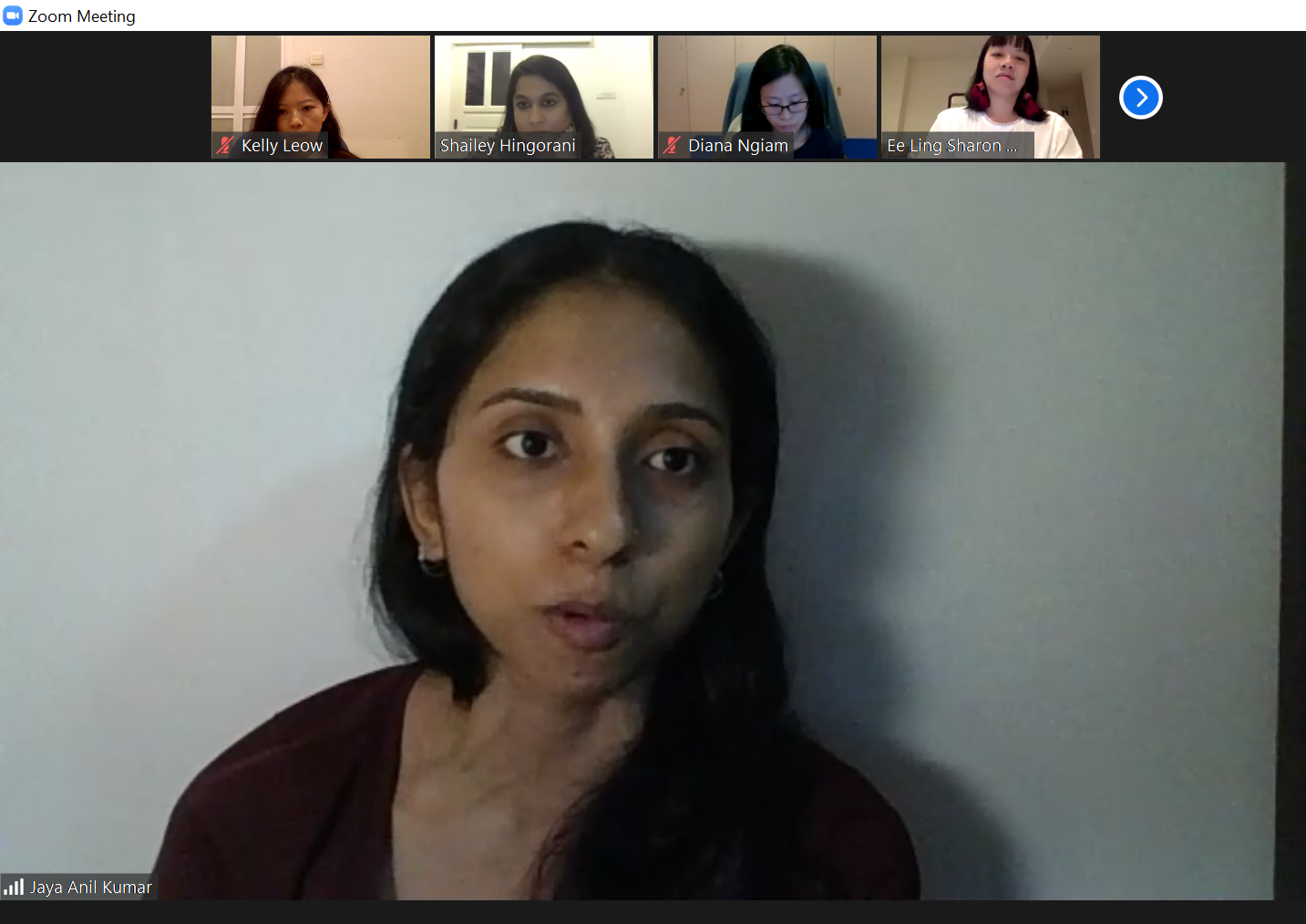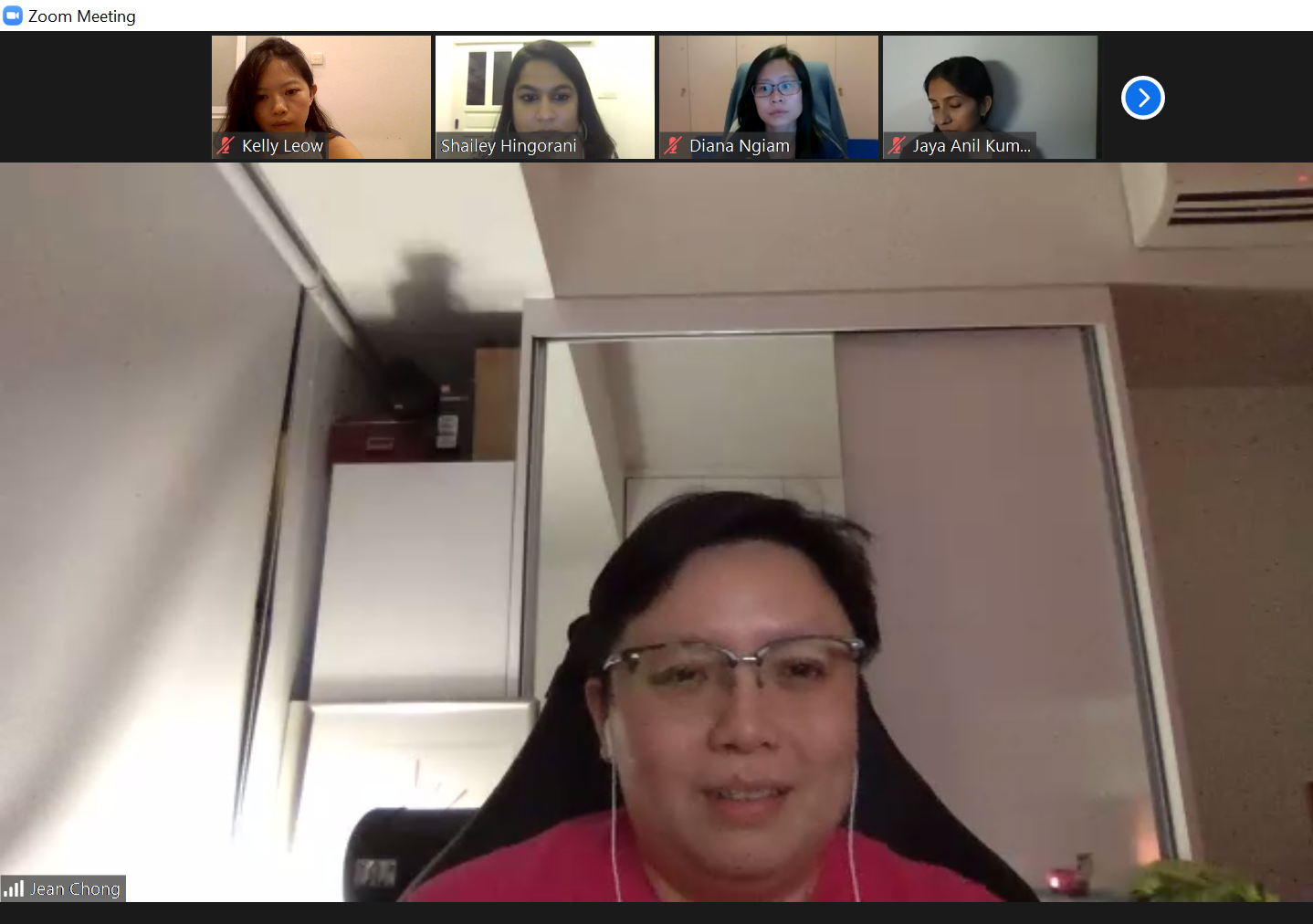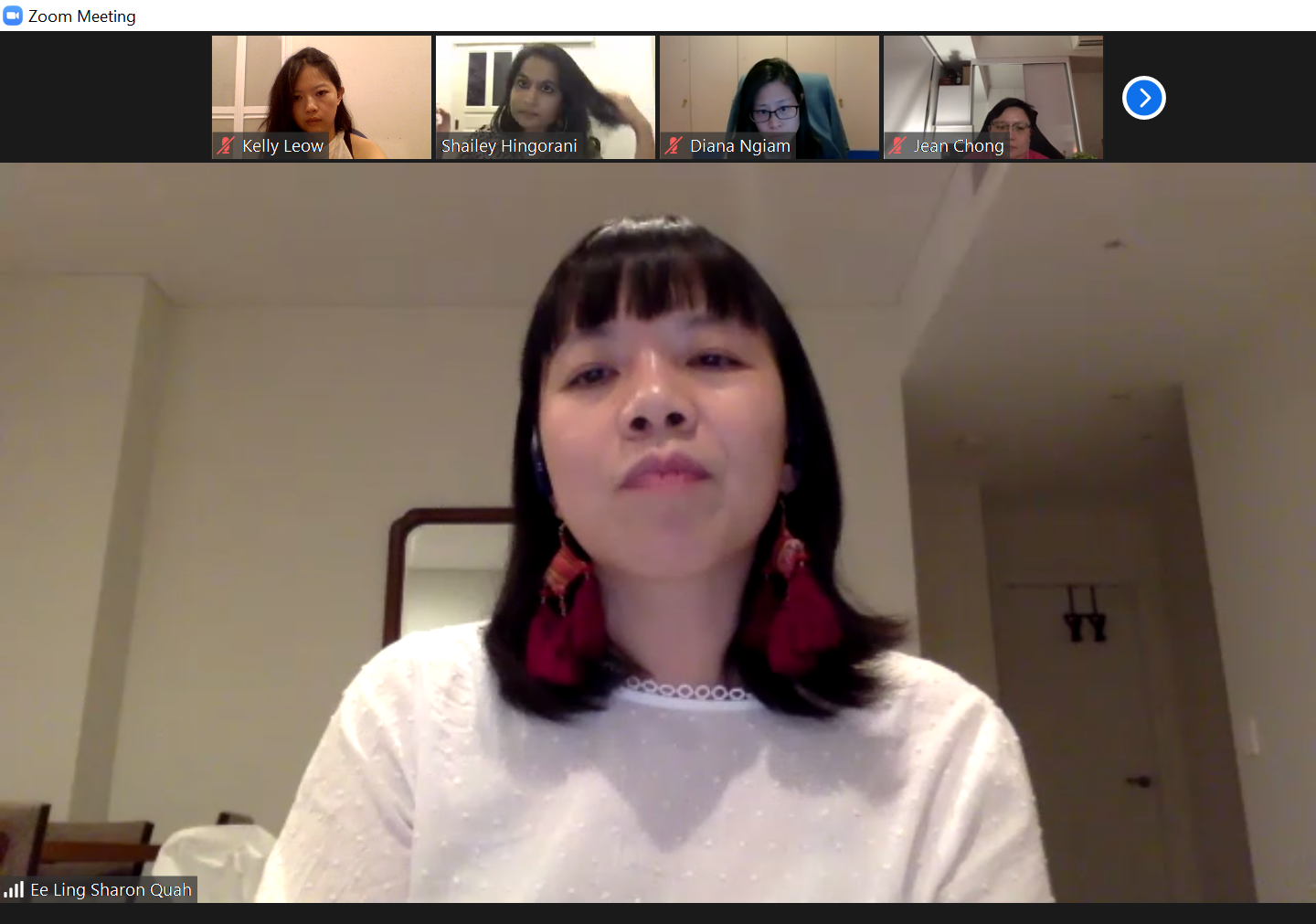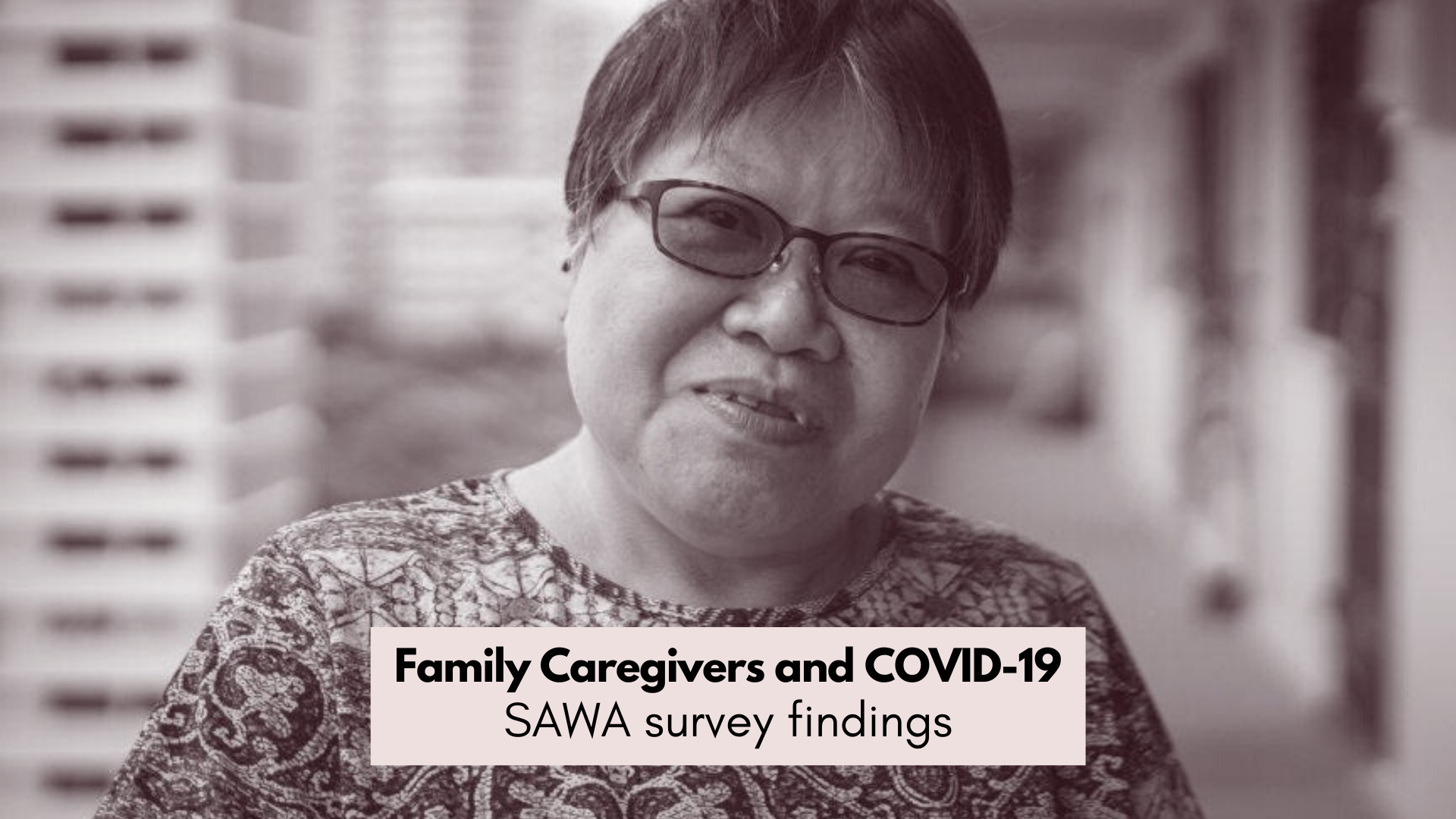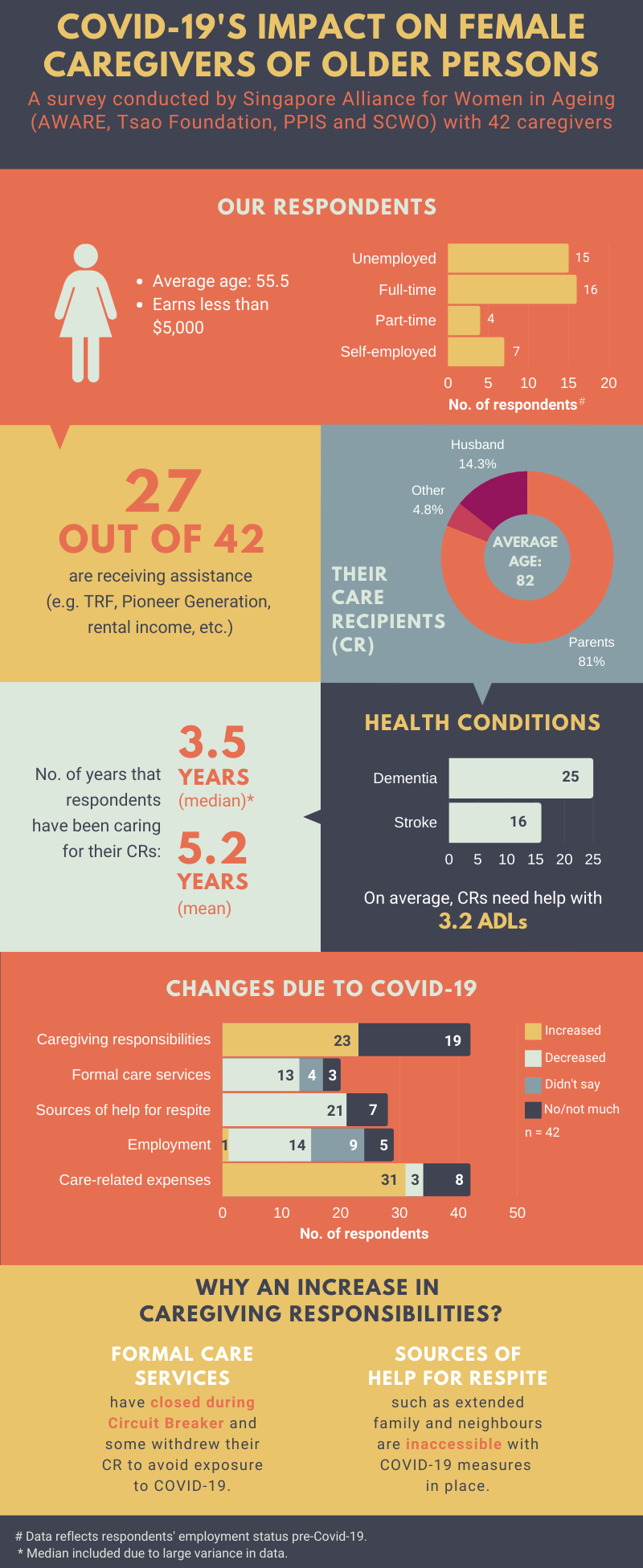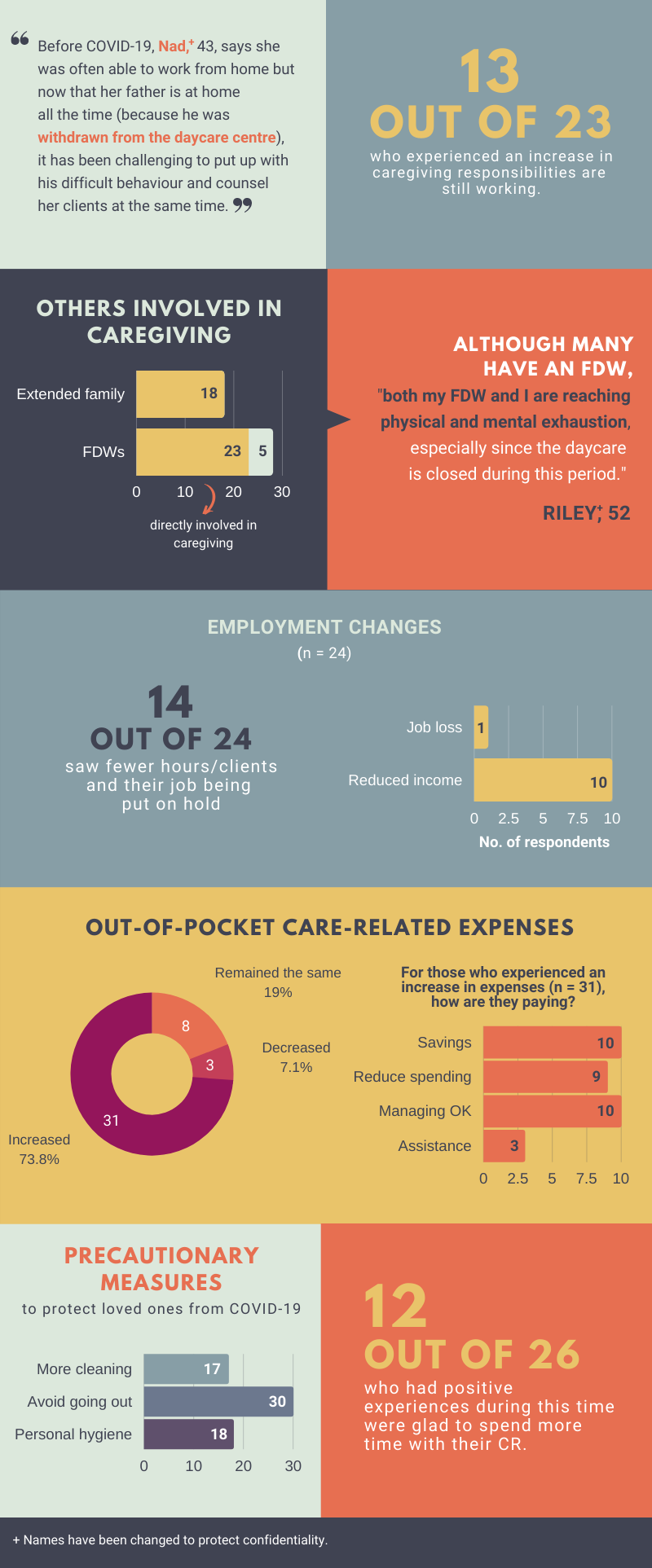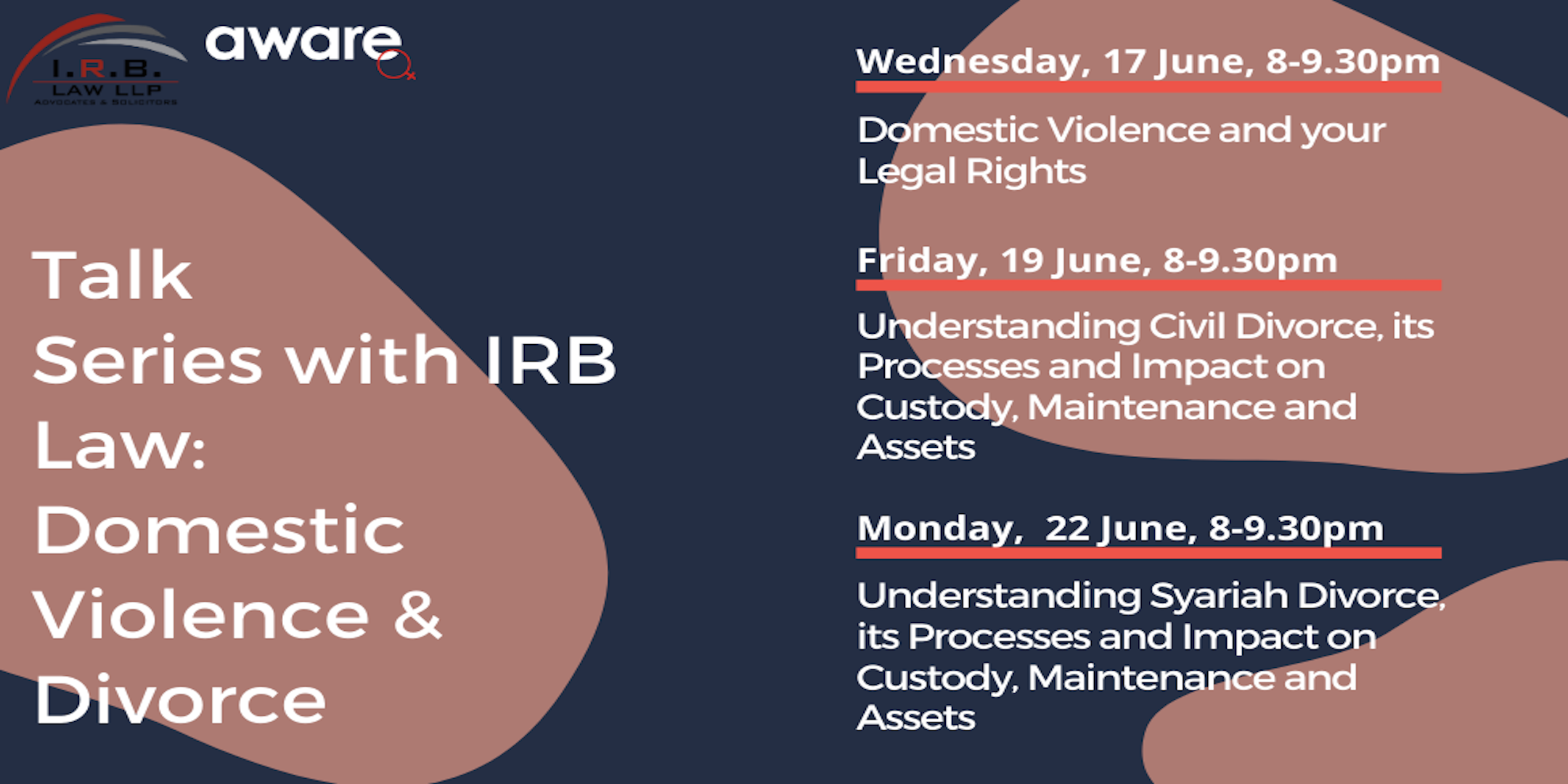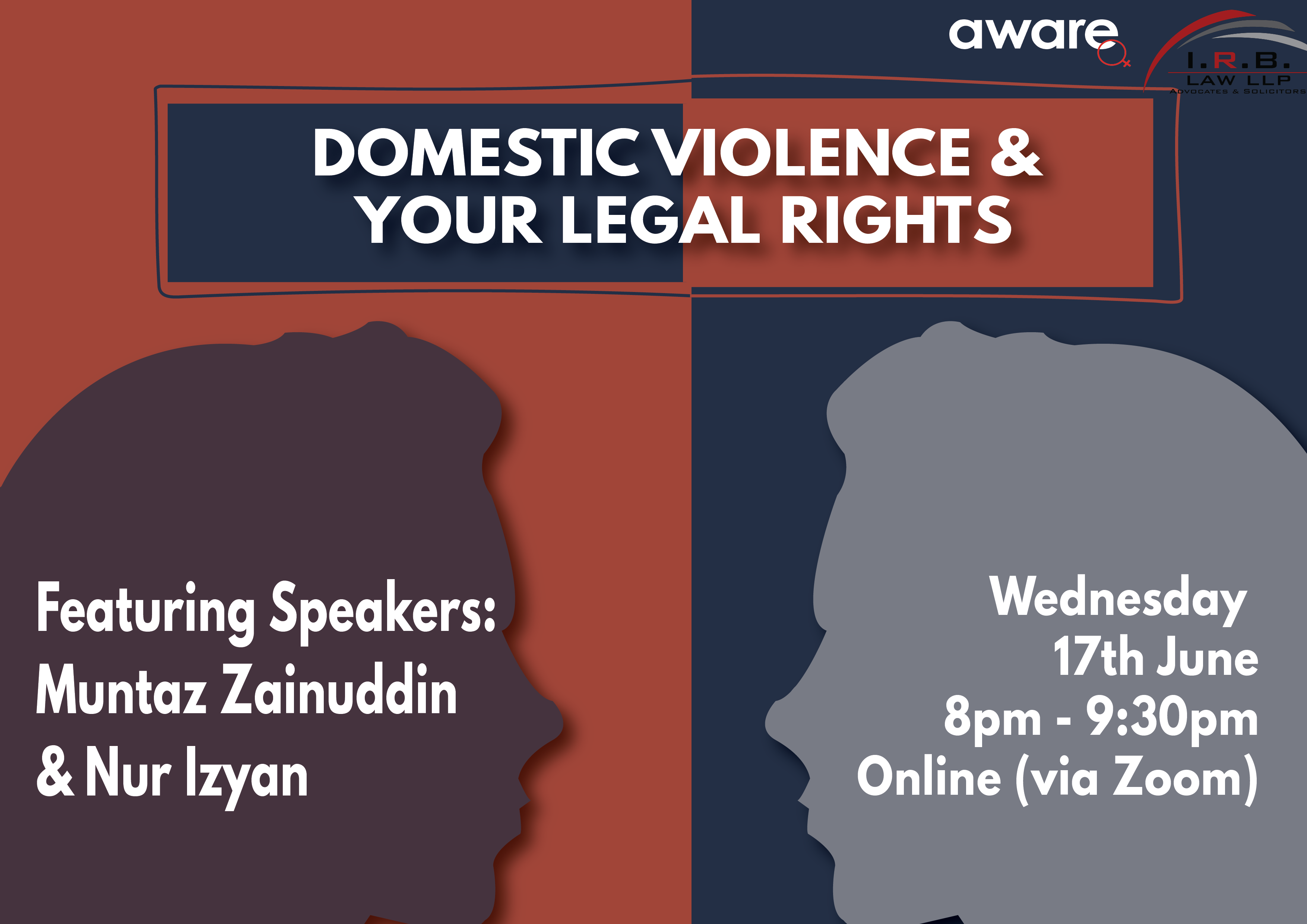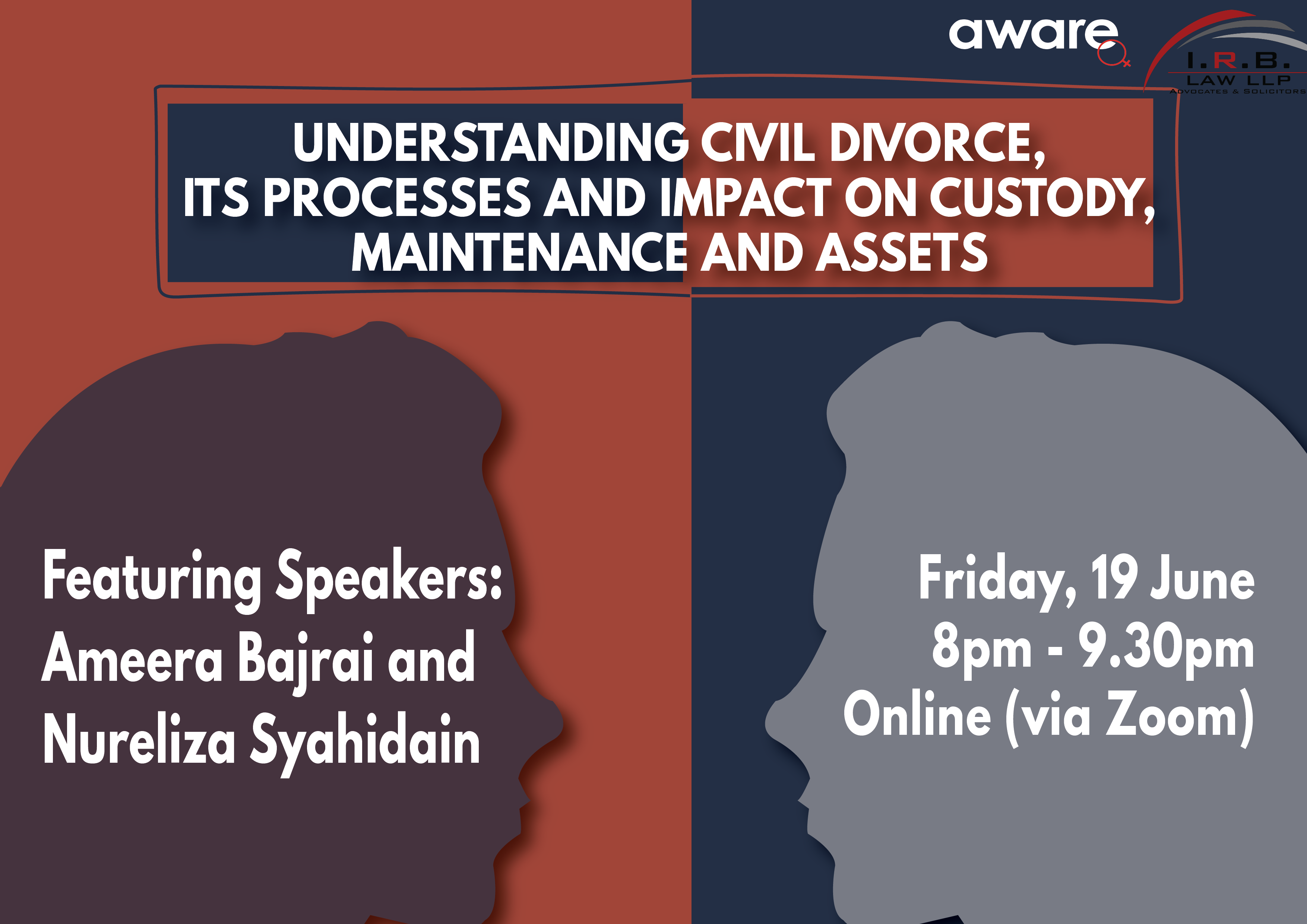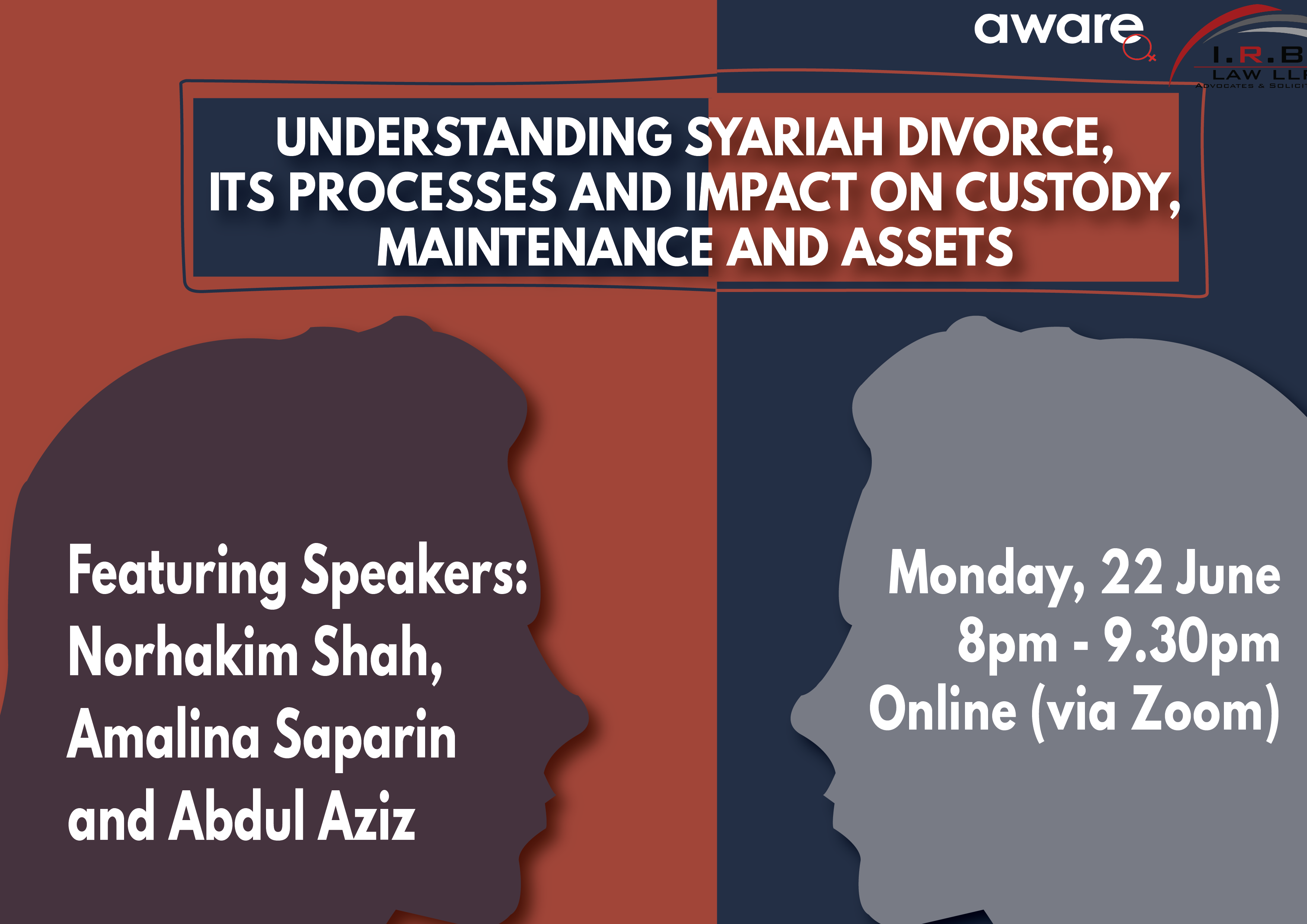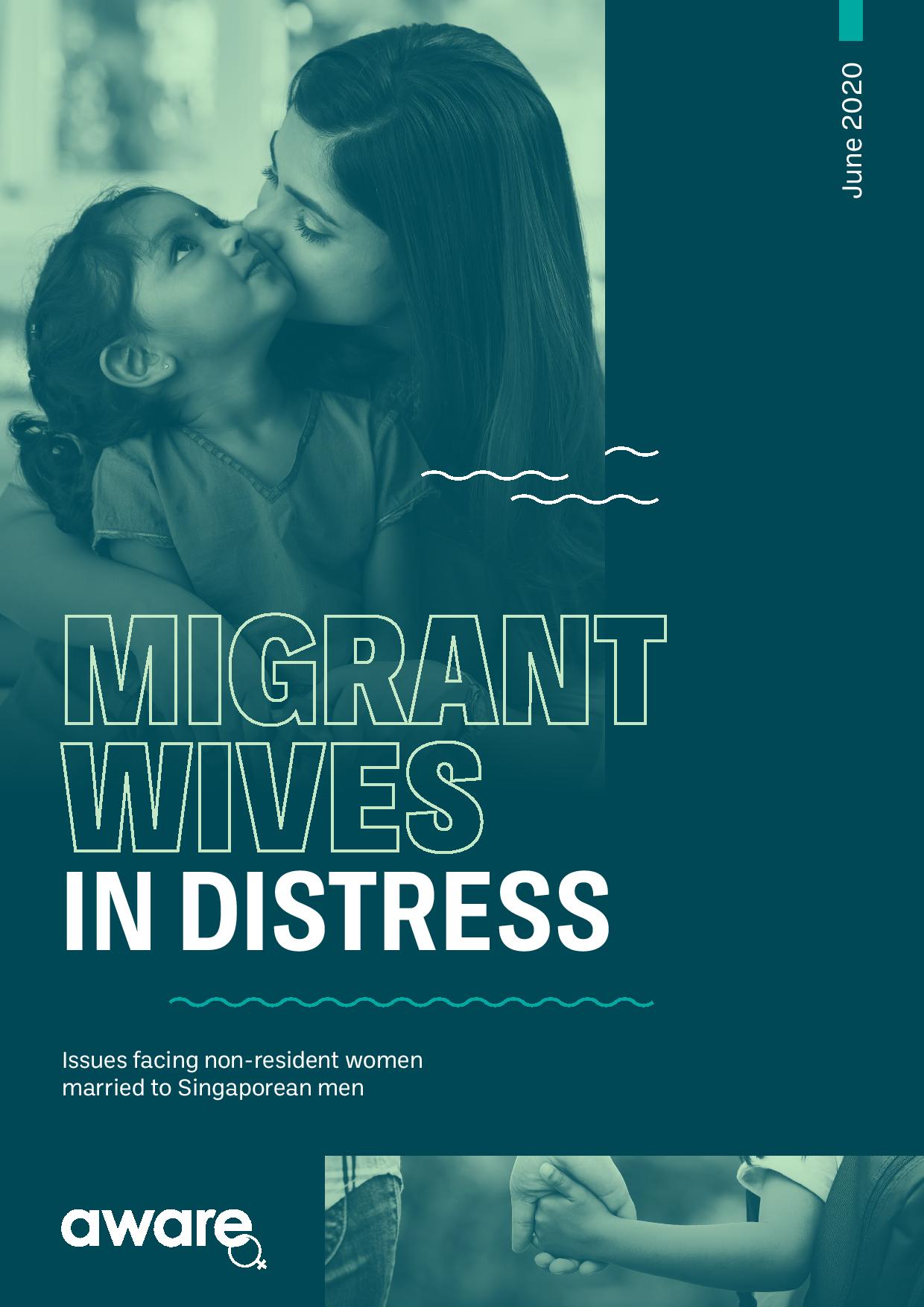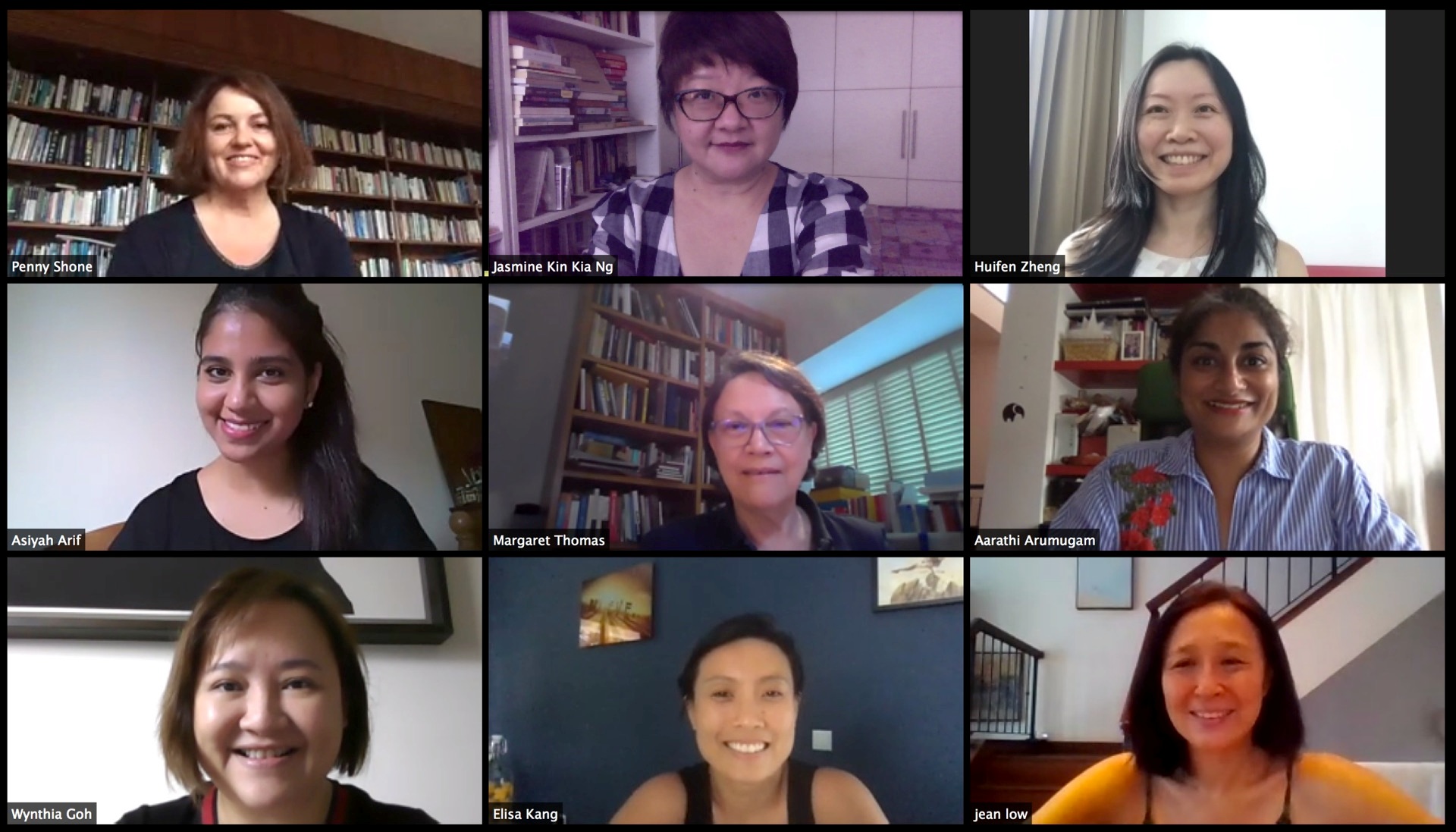
This post was originally published as a press release on 10 June 2020.
10 June 2020 – On Saturday, 30 May 2020, gender equality organisation AWARE held its first-ever virtual Annual General Meeting (AGM) in 35 years.
The meeting was held over video-conferencing platform Zoom and attended by 101 AWARE members, including both ordinary members (Singaporean women) and associate members (men, gender-nonconforming individuals and non-Singaporeans).
Although AWARE had originally scheduled an in-person AGM for 27 April 2020, the COVID-19 outbreak and circuit-breaker measures in Singapore necessitated that the event move online. As 2020 was an election year for the AWARE Board, the organisation also held a virtual “Meet the Candidates” session on 13 May, where 10 candidates introduced themselves to the wider membership and took questions.
“We were initially worried that holding the AGM online would hurt the turnout, but we ended up quite thrilled at the attendance,” said AWARE Executive Director Corinna Lim. “Although AWARE members range in age from teenagers to nonagenarians, it’s clear there is no technology ceiling when it comes to engagement with feminist issues and civil society. This reassures us that holding events and services online, as we began doing in April, not only does not deter our community, it allows us to include some who otherwise face barriers to access.”
Founding member, former journalist and incumbent Margaret Thomas was unopposed running for her second term as President of AWARE. The eight other positions on the Board were contested. The successful candidates are Asiyah Arif, Aarathi Arumugam, Wynthia Goh, Elisa Kang, Jean Low, Jasmine Ng, Penelope Shone and Zheng Huifen.
Ms Lim said, “AWARE looks to its Board for vision, progressive ideas and empathetic leadership. This new line-up, including three first-timers, brings so much energy, talent and diverse life experience to the table. They are incredibly impressive as individuals—we have already benefited from their committed volunteering for years—but I am especially excited to see what they achieve together as a team.”
“2020 marks AWARE’s 35 birthday,” said Ms Thomas, “and we hope to be just as vibrant and strong 35 years from now. To make that happen, AWARE must continue to engage productively with policymakers, donors, volunteers and supporters, the media and other civil society organisations, so that our message of equality and justice continues to connect. We must also focus, in the short term, on the pressing needs of fundraising and talent development, as demand for our services expands.
“The year ahead will test AWARE’s mettle, but likely also prove how vital the organisation is. COVID-19, as many have pointed out, does not discriminate. It infects rich and poor, powerful and powerless alike—yet it is the powerless and the poor who suffer its consequences the most. With experts calling this pandemic a step backwards for gender equality, we are all the more determined to keep championing the rights of female workers, mothers, caregivers, migrant wives, minority race women, LBTQ persons and all other vulnerable and marginalised people in Singapore.”
ANNEX
AWARE Board 2020-2022: Positions and Biographies
President: Margaret Thomas has held senior editing positions at The Business Times, The Singapore Monitor and TODAY, and was in the founding team of AsiaOne. In 1984/85, Margaret was a founder member of AWARE. Over the last three decades, she has served on many of its committees, and has been a member of its board since 2009. In 2003 she was a founder member of Transient Workers Count Too (TWC2).
1st Vice President: Penelope Shone was born in New Zealand. She has been a resident of Singapore since 1985, and an AWARE member for 20 years. Her career has unfolded in both the public and private sectors. Most recently, she led international communications for General Electric across 150 countries. Prior to that, she was a managing director at Citigroup for 12 years, leading the company’s public affairs, communications and citizenship strategies across Asia Pacific. This included the supervision of 20,000 volunteers and $18 million in annual grants to NGOs.
2nd Vice President: Jean Low is currently CEO of 1880, a private club focused on building community. Previously, she was Director of Finance at United World College of South East Asia, CFO at Mapletree Greater China Commercial Trust and Head of Risk Management at Mapletree Investments. She is a Fellow of the Institute of Chartered Accountants in England and Wales. An AWARE member since 2009 and board member since 2016, she cares deeply about education, social justice and gender equality.
Secretary: Elisa Kang has 13 years of international experience in the wealth management industry and has been an advisor and counsellor to individuals, families and family offices, on strategic asset allocation, family business dynamics and legacy issues. Elisa was a part-time counsellor at the SMU Mrs Wong Kwok Leung Student Counselling Centre, and a part-time trainer for Catalyse Consulting. Elisa has been volunteering and working with AWARE since 2016, and project-managed the Women’s Helpline expansion in 2018.
Treasurer: Aarathi Arumugam is an entrepreneur who is passionate about connecting communities through causes close to her heart. Her career trajectory has taken her along different paths, from corporations to volunteer organisations to start-ups—experiences that she considers her personal MBA. Since becoming a member in 2009, Aarathi has volunteered with AWARE as a trainer, educating and raising awareness about workplace sexual harassment and comprehensive sexuality education. In 2019, she also conceptualised and executed a series of events called Kitchen Movements, to raise awareness and funds for Daughters of Tomorrow.
Assistant Treasurer: Zheng Huifen has been an AWARE member since 2009 and is now a life member. She has volunteered with AWARE in various capacities, including the legal clinic, Helpliner training in Mandarin and updates to AWARE’s Constitution. Apart from AWARE, Huifen was a committee member of the Humanist Society (Singapore) between 2012 and 2017. At HSS, she helped to create a safe space for people identifying as atheist, agnostic, freethinking or secular. A corporate lawyer with a technology and payments focus, Huifen is also a founding member of the pro bono arm of the Association of Corporate Counsel in Singapore.
Board Member: Asiyah Arif is a specialist dispute resolution lawyer who acts for clients in sensitive high-value commercial disputes and advises on employment matters. Asiyah led AWARE’s SHOut! Campaign to lobby for greater protection against workplace sexual harassment, and its We Can! Campaign to change social attitudes towards violence against women. Asiyah is committed to elevating the voices and stories of minority women in Singapore, and uplifting women from all backgrounds and walks of life.
Board Member: Jasmine Ng is a filmmaker and educator who has executive-produced and directed award-winning shorts, feature films and international broadcast work. She is President of SAMPP, the Singapore Association for Motion Picture Professionals. Jasmine has also conceptualised many cross-disciplinary works for social causes, including civic awareness projects such as IPS PRISM for the Institute of Policy Studies, and the BOTH SIDES, NOW installation project, which explored death and dying with the support of Lien Foundation.
Board Member: Wynthia Goh is Head of NEXT Digital at NCS. Previously, she was Head of Omnichannel at NTUC Enterprise, and before that led regional digital teams for Nokia, eBay, Avaya, SAP and Aviva, with roles in product management, business development, venture investment, digital strategy and marketing. Wynthia has a master’s in Public Policy from the State University of New York and is a Fulbright Scholar. An AWARE member since 2009, Wynthia is also on the Women in Fintech subcommittee of the Singapore Fintech Association.




